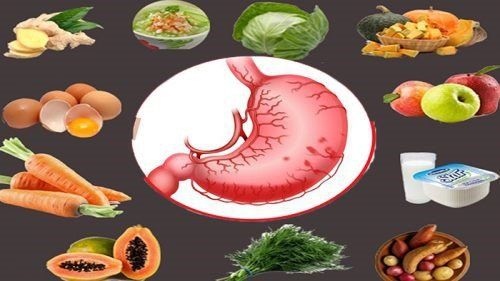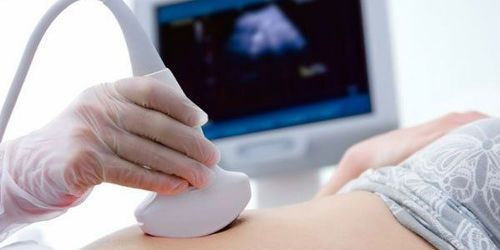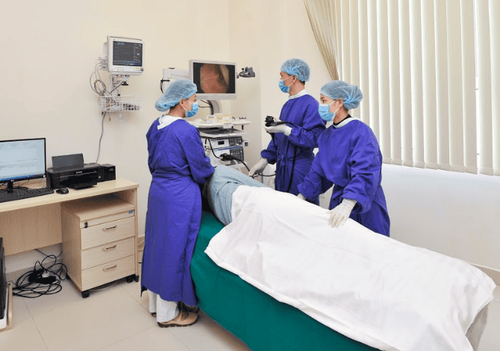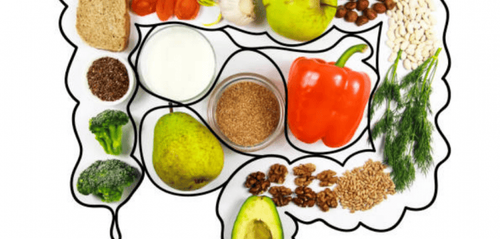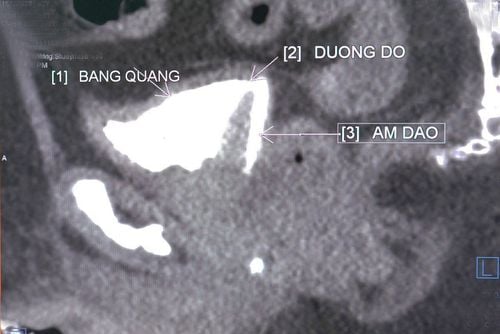This is an automatically translated article.
The article was professionally consulted with Doctor Dao Minh Phuong - Department of Medical Examination & Internal Medicine, Vinmec Central Park International General Hospital.The digestive system is not only responsible for metabolizing and absorbing nutrients from food, but also supporting the production of energy for the body, repair and growth of cells. Any problem in any part of the digestive system can affect the body's digestion of food and absorption of nutrients.
1. What is the digestive system?
The digestive system is a system of many organs, whose function is to break down structures and absorb nutrients needed from food to use for human daily activities. To carry out this process, the digestive system needs a smooth combination from chewing, mechanical crushing and enzymatic activities that help biodegradation.2. What organs are the digestive system composed of?
In addition to the general function, many people also wonder what organs the digestive system consists of and what is the specific task of each organ. The digestive system inside our body is divided into two main parts, which are the alimentary canal and the digestive gland.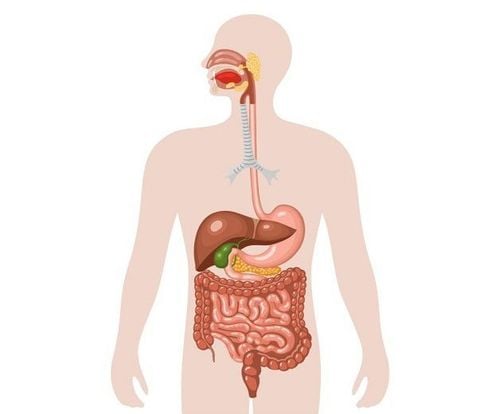
Nếu một cơ quan nào trong hệ tiêu hóa xảy ra vấn đề thì có thể ảnh hưởng đến việc tiêu hóa thức ăn và hấp thu dưỡng chất
2.1. Gastrointestinal tract
Throat: Throat is where the digestive process begins with the reception of food from the mouth. Here, food is gently transported from the pharynx down the esophagus. The pharynx is considered as an intermediary organ for transporting food. Esophagus: Behind the throat, the esophagus is the next organ where food goes. This organ is shaped like a long tube with the job of moving food to the stomach. The esophagus normally makes peristaltic contractions to gently push food down. In addition, the esophagus also helps to keep food in the stomach from backing up by a mechanical "valve". Stomach: Stomach is one of the important organs of the digestive system. This place is shaped like a bag with many muscles located one after another. When food from the esophagus is transported down, enzymes and acids begin to be secreted. These active ingredients will be mixed by the stomach muscles with food to support the easy hydrolysis of proteins and nutrients. Food stays in the stomach for a long time because it has to constantly break down the food. After the breakdown is complete, the food will be in the form of a liquid or paste and move to the small intestine. Small intestine: The small intestine inside the human body can be up to 6 meters long. The small intestine continues to break down the remaining food from the stomach by mixing them with enzymes secreted from the pancreas or bile and liver. At the same time, the small intestine also absorbs water and nutrients into the bloodstream. The small intestine then pushes the remaining food residue into the large intestine. Large intestine (also called colon): the remaining food residue that cannot be absorbed from the small intestine will be transferred to the colon organ in liquid form. Here, the colon will continue to draw water from that waste, turning it into a solid form, forming stool. Normally, stool will be processed in the colon in about 36 hours. Waste is made up mainly of undigested food residues, fluid and old cells of the lining of the digestive tract. Rectum: The rectum is about 20cm long, is the next part behind the colon. When stool moves to this organ, immediately special nerves will be stimulated and send signals to the cerebral cortex to notify you that you need to defecate immediately. For infants and young children, the function of this organ is not yet complete, so children still cannot control their bowel movements. Anal: The anus is the final organ in the digestive process. This organ is made up of the anal sphincter and the pelvic floor muscle. The main job of the anus is to store and remove waste products. When you go to the toilet, the anus will automatically secrete mucus to lubricate it so that waste can move out of the body easily.2.2. Digestive gland
Salivary Glands: Salivary glands secrete saliva that aids in wetting and softening of food. At the same time, saliva also contains beneficial enzymes with the ability to break down proteins and starches into small and simple molecules, supporting the process of digesting food more smoothly. Digestive glands of pancreas, liver, bile: Digestive glands of the pancreas, liver, and bile have the function of supporting the digestive process in the small intestine. The gallbladder also has the ability to gently contract, helping to push bile into the common bile duct. Then, bile will enter the duodenum and enter the small intestine, helping to digest fats more quickly. It can be seen that the digestive system and digestive organs have extremely important roles and functions for humans. The digestive process is a long and complex process, requiring the participation and coordination of many internal organs. Any problem in any part of the digestive system can affect the digestion of food and the absorption of nutrients by the body. So when there are any symptoms of the gastrointestinal tract such as indigestion, bloating, belching, heartburn, constipation, loose stools, bloody stools, or jaundice, itchy skin, weight loss.. .You should go to medical facilities to be examined and diagnosed and treated as soon as possible.Please dial HOTLINE for more information or register for an appointment HERE. Download MyVinmec app to make appointments faster and to manage your bookings easily.





